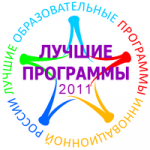|
Yenisei legal readings: Day Two
Department’s head of registration of rights to real estate non-residential Russian registry Office of the Krasnoyarsk region - Tatyana Krasnopeeva conducted a master class on the topic "The simplified procedure for registration of property rights". Upon completion of the master-class she gave answers to students' questions about the capabilities of the Russian State Register, and about the most interesting moments of practice. In addition, no less fascinating master-class of the Krasnoyarsk region Prosecutor's Office was conducted. It was run by the public prosecutor of Department for Supervision over the implementation of legislation in the sphere of economy and conservation of the Krasnoyarsk Territory Prosecutor's Office – Irpetkin Artem. At the end of the master class he willingly shared with the students the most interesting and curious details of the work in the prosecutor's office. Session "Trends in the development of modern international relations" worked for all students interested in the problems of international law. In the middle of the day students played the whole trial procedure under the supervision of the Department of Civil Procedure Law Institute. The students had a unique opportunity to understand the legal process from the inside, by taking an active part in the role of witnesses, judges, plaintiffs, defendants and third parties. The most resonant themes of the section “Juvenile law and juvenile justice” were topical issues such as the problem of establishment baby boxes, ineffectiveness of chemical castration as a tool to prevent crimes against sexual inviolability of minors. On the second day, the section "Problems of History and Theory of State and Law" continued its work. In addition, reports of students about the actual problems of Krasnoyarsk, as well as the importance of the jury were very interesting. Third year students and graduate of comparative law department analysed Russian and foreign legislation, comparing public and private aspects of different legal systems. Students talked about different approaches to the understanding of unjust enrichment in the Russian and German law and expressed their own opinion on how to implement as far as possible the experience of foreign colleagues in our system. Also, a report on joint contracts caused a lot of positive emotions from the audience. Experts on international and German law positively appreciated the efforts of the speakers and students. Translated by Nikita Rafagudinov |


